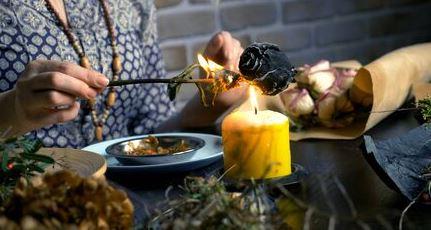Magic Herbs

Magic herbs are plants that are believed to have magical, spiritual, or energetic powers—depending on the culture, ritual, or belief system. They have been used for thousands of years in rituals, healing arts, protective spells, love magic, or to strengthen intentions.
🌿 What makes a herb a magic herb?
Not every plant is automatically magical – it becomes so through:
Traditional associations (e.g., folk magic, witchcraft, alchemy)
Symbolic meaning (e.g., lavender = purification)
Energetic effects on body, mind, or soul
Use in rituals (incense, tinctures, talismans)
🔥 Typical uses
Uses Example herbs
Smudging: Sage, mugwort, myrrh, frankincense
Love magic: Rose, jasmine, damiana, verbena
Protection spells: Garlic, juniper, bay, rosemary
Clairvoyance / trance: Mandrake, wormwood, fly agaric (careful!)
Dream work: Lavender, valerian, blue lotus blossom
Cleansing & blessings: Sage, palo santo, lavender, thyme
Strength & courage: Dandelion, nettle, angelica
🧙♀️ In witchcraft (modern & traditional)
In In Wicca and witchcraft, magical herbs are used for:
Herb bags / magic bags ("mojo bags")
Oils and ointments
Bath rituals
Ritual drinks (witch tea, potions)
Altar decorations / annual cycle festivals
🌱 Examples of magical herbs with effects
🌿 Mugwort (Artemisia vulgaris)
Protection, dream journeys, opening the third eye
Traditional plant of the "wise women"
🌿 Rosemary
Cleansing, remembrance, love
Used in weddings and protective rituals
🌿 Sage (white or common)
Clearing negative energies, spiritual cleansing
Classically used for fumigating rooms
🌿 Lavender
Calming, love, protection, sleep
Often used in love rituals or to help you fall asleep
⚠️ Notes on use
Some magical herbs are toxic or psychoactive (e.g., celandine). B. Mandrake, Datura, and Deadly Nightshade) – they require knowledge and respect.
Magical use ≠ medicinal efficacy, although the two can overlap.
Always use carefully and responsibly – magic begins with awareness.

